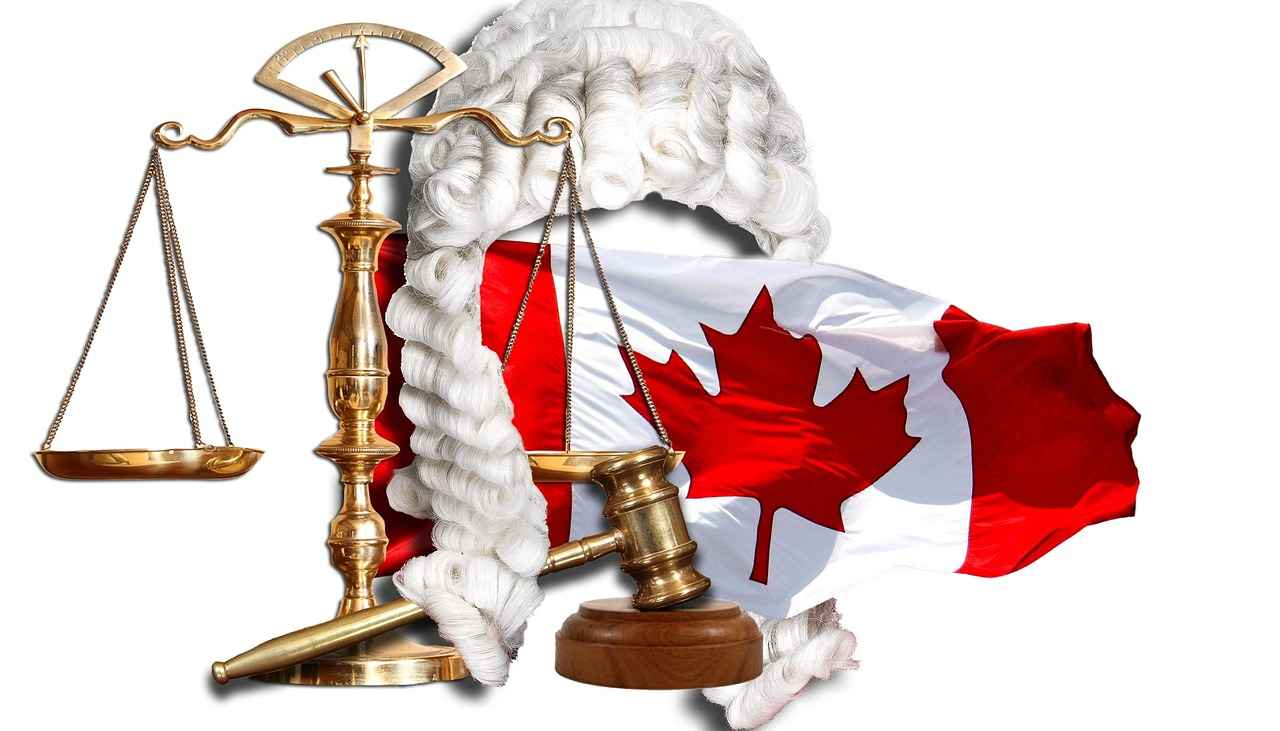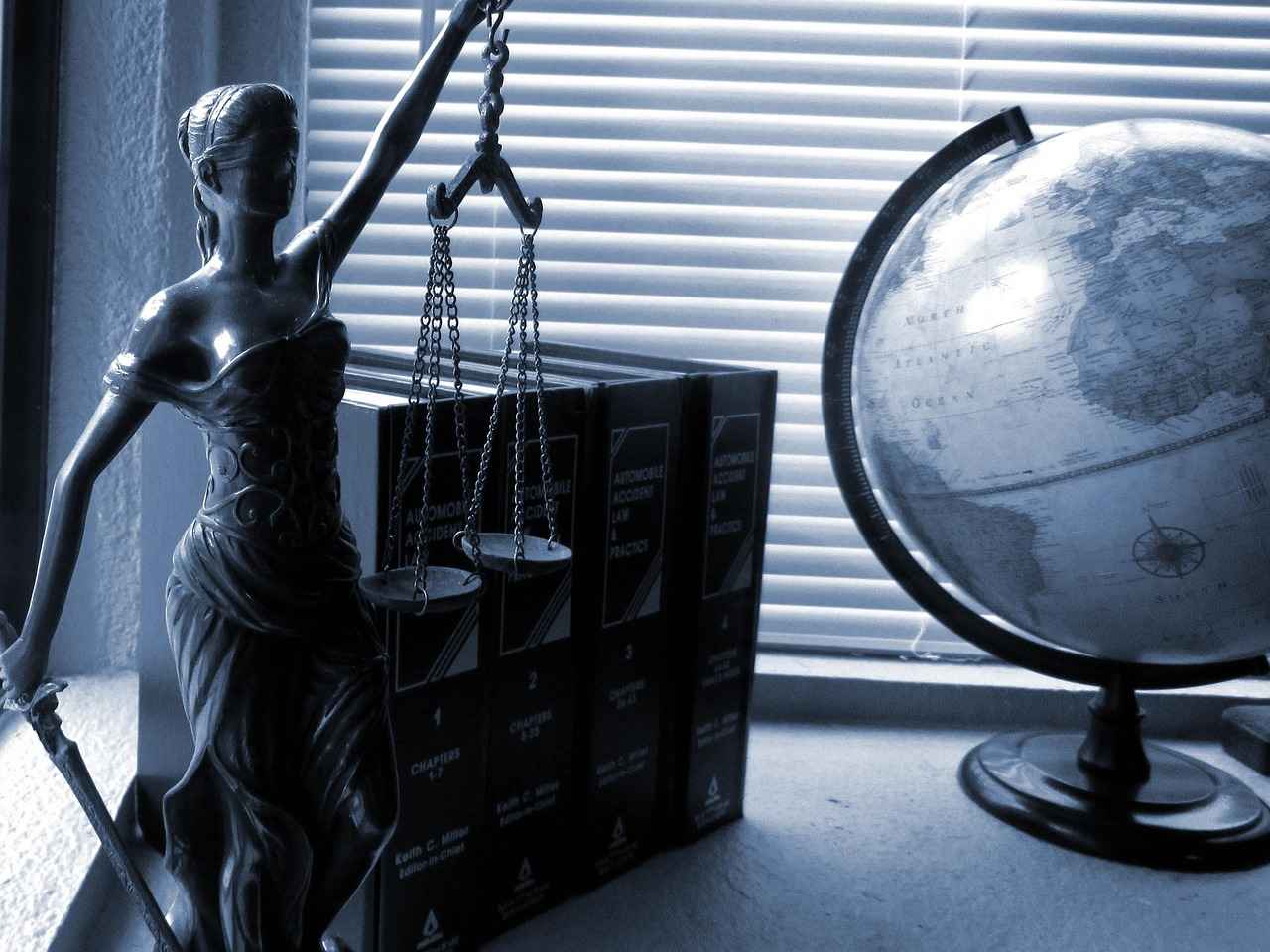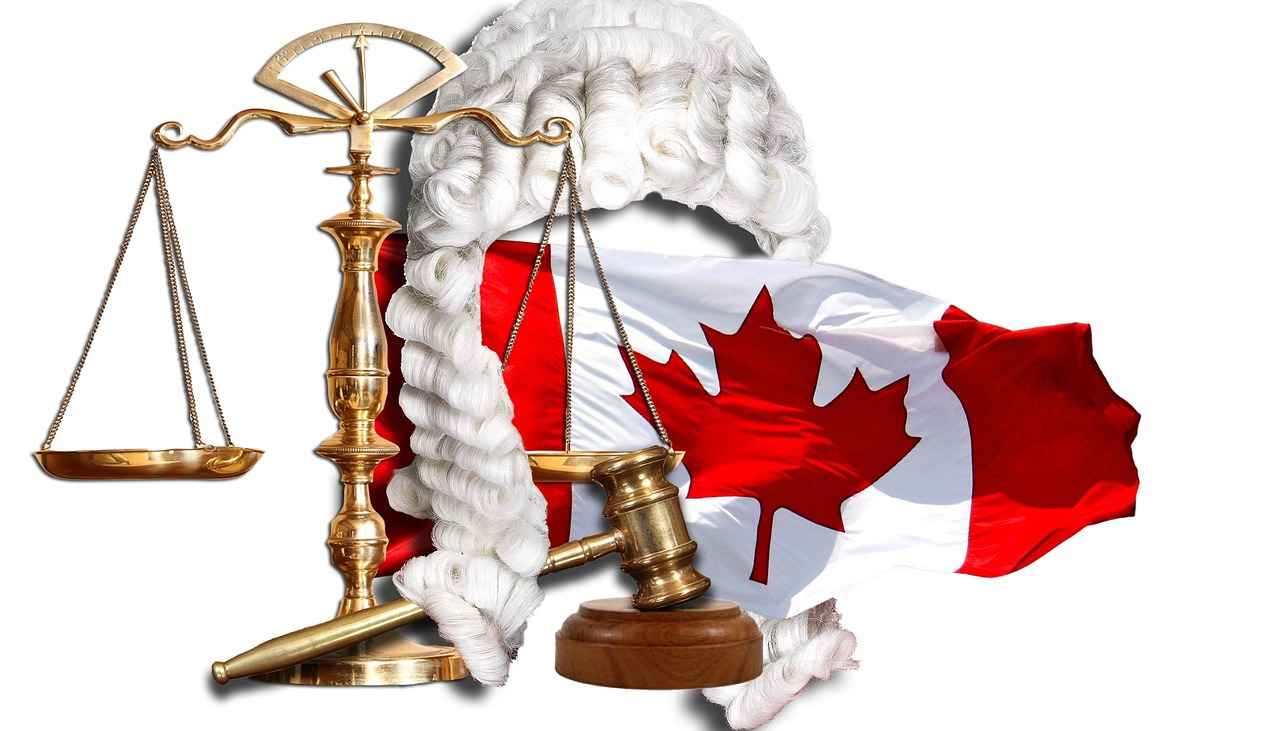This article delves into the various types of legal cases prevalent in the United States, providing essential insights and practical guidance for individuals seeking qualified attorneys in Mesa, Arizona. Understanding these legal matters is crucial for making informed decisions, especially when navigating the complexities of the legal system.
Understanding Personal Injury Cases
Personal injury cases are among the most common legal disputes. These cases typically arise when an individual suffers harm due to another party’s negligence or intentional actions. Common examples include car accidents, slip and fall incidents, and workplace injuries. To find a qualified attorney for personal injury cases, look for professionals with a proven track record in securing favorable settlements or verdicts. Websites like Avvo and FindLaw can provide ratings and reviews of attorneys based on client feedback.
Navigating Medical Malpractice Claims
Medical malpractice occurs when healthcare providers fail to meet the standard of care, resulting in patient harm. These cases can be complex, requiring attorneys with specific expertise in medical law. When searching for an attorney, consider their experience in handling similar cases and their success rates. Additionally, consult local bar associations for referrals and verify credentials through state medical boards.
Dealing with Breach of Contract Issues
Breach of contract cases arise when one party fails to fulfill their obligations under a legally binding agreement. Individuals involved in such disputes should seek attorneys who specialize in contract law. Look for lawyers with experience in your specific industry and who can demonstrate successful resolutions in similar cases. Online platforms like Nolo can also help connect you with qualified attorneys.
Resolving Property Disputes
Property disputes can involve various issues, including ownership claims, boundary disputes, and zoning regulations. A knowledgeable attorney in property law can guide clients through these complexities. When searching for legal representation, seek attorneys with a background in real estate law and a history of successful outcomes in property cases.
Landlord-Tenant Disputes Explained
Disputes between landlords and tenants often arise from issues such as eviction, maintenance, and lease agreements. Finding an attorney experienced in landlord-tenant law is crucial for navigating these situations effectively. Look for attorneys who are familiar with local housing laws and have experience in mediation and litigation.
Understanding Defamation Lawsuits
Defamation cases, whether libel or slander, involve false statements that harm a person’s reputation. Individuals pursuing or defending against such claims must seek attorneys with expertise in defamation law. Assess their previous case outcomes and seek client testimonials to gauge their effectiveness in handling such sensitive matters.
Employment Disputes and Legal Remedies
Employment disputes can encompass various issues, including wrongful termination, discrimination, and wage disputes. Finding an attorney experienced in employment law is vital for employees seeking justice. Look for attorneys who are well-versed in federal and state employment laws and have a history of representing clients in similar cases.
Product Liability Cases Explained
Product liability cases arise when defective products cause harm to consumers. These cases require attorneys who specialize in product liability law and have experience working with experts in engineering and safety standards. When searching for representation, consider attorneys who have successfully handled similar cases and can demonstrate their understanding of the complexities involved.
Understanding Wrongful Death Claims
Wrongful death claims occur when an individual’s negligence leads to another person’s death. Families seeking justice and compensation must find compassionate and experienced attorneys to guide them through the legal process. Look for attorneys with a strong track record in wrongful death cases and who can provide emotional support during this challenging time.
Class Action Lawsuits: What You Need to Know
Class action lawsuits allow groups of individuals to collectively sue for harm caused by the same defendant. Finding attorneys experienced in class actions is essential for effective representation. Seek lawyers who have successfully managed class action cases and can demonstrate their ability to navigate the complexities of these lawsuits.
Criminal Defense: Assault and Battery Cases
Assault and battery are serious criminal offenses that can result in severe penalties. Individuals facing these charges must find skilled criminal defense attorneys who understand the intricacies of the legal system. Look for attorneys with a strong background in criminal law and a history of successful defenses in similar cases.
Understanding Drug Offenses and Legal Representation
Drug offenses range from possession to trafficking and can lead to significant legal consequences. Finding an attorney who specializes in drug law is crucial for individuals seeking the best defense strategies. Look for attorneys with experience in handling drug-related cases and who can demonstrate a thorough understanding of state and federal drug laws.
Finding Legal Help for Family Law Matters
Family law encompasses issues such as divorce, child custody, and support. Individuals should seek attorneys with a strong background in family law to navigate these emotionally charged situations effectively. Look for attorneys who prioritize mediation and negotiation, as these approaches can often lead to more amicable resolutions.

Understanding Personal Injury Cases
Personal injury cases represent a significant portion of legal disputes in the United States, often arising from negligence or reckless behavior of individuals or organizations. These cases can encompass a variety of incidents, including car accidents, slip and fall accidents, medical malpractice, and workplace injuries. Understanding the nuances of personal injury law is essential for anyone who has sustained an injury due to another’s actions.
To successfully navigate a personal injury claim, it is crucial to seek out a qualified attorney who specializes in this area of law. Here are several steps to consider when searching for the right legal representation:
- Research Local Attorneys: Start by conducting online research for personal injury attorneys in your area. Websites like Avvo and FindLaw can provide valuable information about attorneys’ backgrounds, areas of expertise, and client reviews.
- Check Credentials: Look for attorneys who have specific experience in personal injury law. They should have a strong track record of winning cases similar to yours. Verify their education, bar admission, and any additional certifications.
- Read Reviews: Client testimonials can offer insights into an attorney’s reputation and effectiveness. Pay attention to both positive and negative reviews to get a well-rounded view.
- Schedule Consultations: Most personal injury attorneys offer free consultations. Use this opportunity to discuss your case and evaluate the attorney’s communication style and approach. Ask about their experience with cases like yours and their proposed strategy.
- Understand Fee Structures: Personal injury attorneys often work on a contingency fee basis, meaning they only get paid if you win your case. Be sure to clarify their fees and any additional costs that may arise during the legal process.
Additionally, it’s important to be aware of common red flags when hiring a personal injury attorney:
- Lack of Experience: Avoid attorneys who do not specialize in personal injury law or lack sufficient experience in handling similar cases.
- Pressure Tactics: Be cautious of attorneys who pressure you into signing contracts or making quick decisions without fully explaining your options.
- Poor Communication: Choose an attorney who communicates clearly and promptly. If they are difficult to reach or do not respond to your inquiries, it may indicate a lack of professionalism.
By following these guidelines, individuals can find a competent and trustworthy attorney to represent them in personal injury cases, ultimately increasing their chances of achieving a favorable outcome.

Navigating Medical Malpractice Claims
Medical malpractice is a serious issue that arises when healthcare providers fail to adhere to the accepted standard of care, leading to significant harm to patients. This area of law is particularly complex, as it often involves intricate medical knowledge as well as legal expertise. Therefore, finding the right attorney to navigate these claims is crucial for achieving a successful outcome.
When searching for an attorney experienced in medical malpractice cases, consider the following factors:
- Experience and Specialization: Look for attorneys who specialize in medical malpractice law. They should have a proven track record of handling similar cases and achieving favorable settlements or verdicts.
- Education and Credentials: Verify the attorney’s educational background and any additional certifications in medical malpractice or personal injury law. This information can often be found on their firm’s website or legal directories.
- Client Reviews and Testimonials: Read reviews from past clients to gauge the attorney’s reputation and success rate. Websites like Avvo or Martindale-Hubbell can provide insights into an attorney’s standing in the community.
- Initial Consultation: Many attorneys offer free consultations. Use this opportunity to discuss your case, ask questions, and assess their communication style and willingness to advocate for your interests.
Additionally, understanding the medical malpractice process is essential. Typically, these cases require substantial evidence to prove negligence, which may involve expert witness testimony. Therefore, an attorney with a strong network of medical professionals can be invaluable. They can help gather necessary documentation, such as medical records and expert opinions, to build a robust case.
Another critical aspect is the statute of limitations. Each state has specific time frames within which a medical malpractice claim must be filed. In many states, this period is typically between one to three years from the date of the injury. Failing to file within this timeframe can result in losing your right to seek compensation.
When evaluating potential attorneys, be cautious of red flags that may indicate a lack of professionalism or expertise. For instance, if an attorney guarantees a specific outcome or seems overly eager to settle quickly, it could be a sign that they are not fully committed to your case. Additionally, lack of transparency regarding fees or reluctance to provide references can also be warning signs.
In conclusion, navigating medical malpractice claims requires careful consideration and thorough research. By focusing on an attorney’s experience, credentials, and reputation, individuals can increase their chances of finding a qualified legal professional to advocate for their rights effectively.

Dealing with Breach of Contract Issues
Breach of contract cases are prevalent in various sectors, including business, real estate, and personal agreements. A breach occurs when one party fails to meet their contractual obligations, leading to potential disputes and financial losses. Understanding how to navigate these situations is crucial for protecting one’s interests.
When faced with a breach of contract, individuals should first assess the situation to determine the nature of the breach. There are two primary types: material breaches, which significantly undermine the contract’s purpose, and minor breaches, which may not affect the overall agreement but still require remedy. Recognizing the type of breach can influence the legal recourse available.
It is essential to seek an attorney who specializes in contract law. These legal professionals possess the expertise needed to analyze the contract, determine the extent of the breach, and advise on the best course of action. When searching for a qualified attorney, consider the following factors:
- Experience: Look for attorneys with a proven track record in handling breach of contract cases similar to yours.
- Reputation: Research online reviews and testimonials to gauge the attorney’s standing within the legal community.
- Specialization: Ensure the attorney specializes in contract law, as this area requires specific knowledge and skills.
- Communication: Choose an attorney who communicates clearly and promptly, keeping you informed throughout the process.
- Fees: Discuss fee structures upfront to avoid surprises later. Some attorneys may offer free consultations.
In major metropolitan areas such as New York City, Los Angeles, and Chicago, finding a qualified attorney can be competitive. Utilize online platforms like Avvo, FindLaw, and Martindale-Hubbell to search for attorneys based on their ratings, reviews, and areas of expertise. Additionally, local bar associations often provide referral services that can connect you with reputable attorneys in your area.
Red flags to avoid when hiring a legal professional include:
- Lack of transparency: If an attorney is unwilling to discuss their fees or provide clear information about their approach, consider looking elsewhere.
- Negative reviews: While every attorney may have a few dissatisfied clients, a pattern of negative feedback should raise concerns.
- Unprofessional behavior: Pay attention to how the attorney interacts with you during the initial consultation; professionalism is key.
Once you have selected an attorney, they will assist in gathering evidence related to the breach, such as correspondence, performance records, and any other relevant documentation. This evidence is crucial for building a strong case. Depending on the situation, the attorney may recommend various resolutions, including negotiation, mediation, or litigation.
In some instances, parties may choose to settle the dispute out of court. Settlement can save time and resources, allowing both parties to reach a mutually agreeable solution without the need for a lengthy legal battle. Your attorney will guide you through this process, ensuring that your rights and interests are adequately protected.
Understanding the implications of a breach of contract is vital for individuals and businesses alike. By seeking qualified legal representation and following the appropriate steps, you can effectively navigate these disputes and pursue the compensation or resolution you deserve.

Resolving Property Disputes
Property disputes are a common source of conflict among individuals and businesses alike. These disputes can arise from a variety of issues, including boundaries, ownership, zoning, and easements. Navigating the complexities of property law can be daunting, especially for those who are not familiar with legal terminology and procedures. This is where the expertise of a knowledgeable attorney becomes invaluable.
When dealing with property disputes, it’s essential to understand the different types of issues that can arise:
- Boundary Disputes: These often occur when two property owners disagree on the exact location of their property lines. An attorney can help assess property surveys and negotiate a resolution.
- Ownership Disputes: Ownership claims can stem from inheritance issues, joint ownership disagreements, or fraudulent transactions. Legal representation is crucial to establish rightful ownership.
- Zoning Issues: Local governments impose zoning laws that dictate how properties can be used. Disputes may arise when property owners wish to use their land in a way that violates these regulations. An attorney can assist in navigating the zoning application process.
- Easement Disputes: Easements grant one party the right to use another’s property for a specific purpose. Conflicts can arise over the use or maintenance of these easements.
To effectively resolve property disputes, individuals should seek attorneys who specialize in property law. Here are some practical tips for finding the right legal representation:
- Research Local Attorneys: Start by looking for attorneys in your area who focus on property law. Online directories and legal referral services can provide a list of qualified candidates.
- Check Credentials: Look for attorneys with experience in property disputes. Their background should include a strong track record of successful outcomes in similar cases.
- Read Reviews: Client reviews and testimonials can give insight into an attorney’s reputation and effectiveness. Websites like Avvo and Martindale-Hubbell offer ratings and reviews from former clients.
- Consultation: Many attorneys offer free initial consultations. Use this opportunity to discuss your case and gauge the attorney’s expertise and communication style.
- Ask About Fees: Understanding an attorney’s fee structure upfront can help avoid surprises later. Some may charge hourly rates, while others may work on a contingency basis.
It’s also important to be aware of potential red flags when hiring an attorney:
- Lack of Specialization: Avoid attorneys who do not specialize in property law, as they may not be familiar with the nuances of property disputes.
- Poor Communication: If an attorney is difficult to reach or does not respond promptly, it may indicate a lack of commitment to your case.
- High Turnover: Frequent changes in staff or attorneys at a firm may signal instability, which can impact your case.
In conclusion, resolving property disputes requires a thorough understanding of the law and effective negotiation skills. By seeking the assistance of a qualified attorney, individuals can navigate these complex issues more effectively and work towards a favorable resolution.

Landlord-Tenant Disputes Explained
Landlord-tenant disputes are a common issue in rental agreements, often leading to significant stress for both parties involved. These disputes can encompass a wide range of issues, from eviction proceedings to maintenance requests and everything in between. Understanding the nuances of these disputes is essential for both landlords and tenants, as the legal landscape can be complex and fraught with challenges.
When it comes to eviction, landlords must follow specific legal procedures to remove a tenant from their property. This often involves providing proper notice, filing legal documents, and attending court hearings. Tenants, on the other hand, have rights that protect them from wrongful eviction. They should be aware of their local laws and seek legal representation if they feel their rights are being violated.
Maintenance issues also frequently lead to disputes. Tenants may request repairs for problems such as plumbing leaks, heating failures, or pest infestations. If landlords fail to address these issues promptly, tenants may have grounds to pursue legal action. It is crucial for landlords to maintain open lines of communication with their tenants and address maintenance requests in a timely manner to avoid potential legal conflicts.
In many cases, finding an attorney experienced in landlord-tenant law can make a significant difference in the outcome of a dispute. Here are some practical steps to find the right legal representation:
- Research Local Attorneys: Start by searching online for attorneys who specialize in landlord-tenant disputes in your area. Websites like Avvo and FindLaw provide directories of lawyers along with reviews and ratings.
- Check Credentials: Look for attorneys who have experience specifically in landlord-tenant law. Check their educational background, years of practice, and any relevant certifications.
- Schedule Consultations: Many attorneys offer free initial consultations. Use this opportunity to discuss your case and gauge their expertise and approach to handling disputes.
- Ask for Referrals: If you know someone who has dealt with a similar issue, ask for recommendations. Personal referrals can provide valuable insights into an attorney’s capabilities.
- Consider Communication: Choose an attorney who communicates clearly and promptly. Effective communication is vital for navigating legal disputes smoothly.
It’s also essential to be aware of red flags when selecting an attorney. Avoid those who:
- Make unrealistic promises about the outcome of your case.
- Have poor reviews or a lack of positive feedback from previous clients.
- Do not provide clear information about their fees and billing practices.
Landlord-tenant disputes can be emotionally charged and complicated. By understanding the common issues and knowing how to find a qualified attorney, both landlords and tenants can navigate these challenges more effectively. Seeking legal advice early in a dispute can often prevent escalation and lead to more favorable outcomes for both parties.

Understanding Defamation Lawsuits
Defamation lawsuits are critical legal actions that arise when false statements are made about an individual or entity, resulting in damage to their reputation. These cases can be classified into two main categories: libel, which pertains to written statements, and slander, which involves spoken words. Given the potential impact on a person’s personal and professional life, navigating defamation claims requires a thorough understanding of the law and the ability to present compelling evidence.
Individuals considering a defamation lawsuit must first establish that the statement in question is indeed false and that it has caused harm. This often involves gathering substantial evidence, including witness statements, documented communications, and expert testimonies. The burden of proof typically lies with the plaintiff, making it essential to work with an attorney who specializes in defamation law.
When seeking legal representation, individuals should look for attorneys with a proven track record in handling defamation cases. Here are some practical steps to find the right legal expert:
- Research Credentials: Look for attorneys who have a strong background in media law or defamation cases. Their education, professional affiliations, and past case outcomes can provide insight into their expertise.
- Check Reviews and Testimonials: Online platforms such as Avvo, Martindale-Hubbell, and Google Reviews can help gauge an attorney’s reputation. Pay attention to feedback specifically related to defamation cases.
- Consultations: Many attorneys offer free initial consultations. Use this opportunity to discuss your case and assess their approach. Ask about their experience with similar cases and their strategies for success.
- Evaluate Communication Skills: A good attorney should communicate clearly and effectively. They should be able to explain complex legal concepts in a way that is easy to understand.
- Understand Fee Structures: Defamation cases can be lengthy and costly. Ensure you understand the attorney’s fee structure, whether they charge hourly rates or work on a contingency basis.
It’s also essential to be aware of potential red flags when hiring a defamation attorney:
- Lack of Experience: Be cautious of attorneys who do not have specific experience in defamation law. This area of law has unique challenges that require specialized knowledge.
- Pressure Tactics: Avoid attorneys who pressure you into signing contracts or making quick decisions. A reputable attorney will allow you time to consider your options.
- Unclear Communication: If an attorney struggles to explain their approach or the legal process, it may indicate a lack of understanding or experience.
In conclusion, defamation lawsuits can have significant ramifications for victims, making it crucial to find a qualified attorney who understands the complexities of these cases. By conducting thorough research, assessing credentials, and being mindful of red flags, individuals can secure the legal representation they need to effectively pursue or defend against defamation claims.

Employment Disputes and Legal Remedies
Employment disputes can arise in various forms, including wrongful termination, discrimination, and wage disputes. Navigating these complex issues requires a solid understanding of employment law and the ability to find a qualified attorney who specializes in this field. Employees seeking justice must be proactive in their approach, as the legal landscape can be daunting and often favors those who are well-prepared.
When searching for an attorney, consider the following key factors:
- Experience in Employment Law: Look for attorneys who have a proven track record in handling employment disputes. They should be familiar with local and federal laws that govern workplace issues.
- Reputation: Research online reviews and testimonials from previous clients. A lawyer with a positive reputation in the community can often provide better representation.
- Specialization: Some lawyers focus specifically on certain types of employment disputes, such as wrongful termination or discrimination. Ensure that the attorney you choose has relevant experience in the specific area of your case.
- Initial Consultation: Many attorneys offer free consultations. Use this opportunity to gauge their understanding of your situation and their proposed approach.
- Fee Structure: Understand how the attorney charges for their services. Some may work on a contingency basis, while others may charge hourly rates. Be clear about the costs involved before engaging their services.
In major cities like New York City, Los Angeles, and Chicago, the competition among attorneys can be fierce. Utilize online platforms such as Avvo or FindLaw to compare attorneys based on their ratings, client feedback, and areas of expertise. These platforms also provide valuable insights into the attorneys’ backgrounds, including their education and years of practice.
It is also essential to be aware of red flags when selecting an attorney. For instance, if an attorney guarantees a specific outcome or pressures you to make quick decisions, it may be wise to look elsewhere. Additionally, lack of communication or unresponsiveness can indicate a lack of professionalism and commitment.
Lastly, consider seeking recommendations from trusted sources, such as friends, family, or colleagues who have had positive experiences with employment attorneys. Personal referrals can often lead to finding a trustworthy lawyer who understands your needs and can advocate effectively on your behalf.

Product Liability Cases Explained
Product liability cases are a critical area of law that addresses injuries or damages caused by defective products. These cases typically arise when a product fails to perform as intended, leading to harm to the consumer. Understanding the nuances of product liability is essential for anyone who has been injured by a defective product, whether it be a faulty appliance, a dangerous drug, or a defective vehicle. In the United States, the legal framework surrounding product liability can be complex, involving various theories of liability, including negligence, strict liability, and breach of warranty.
When pursuing a product liability claim, individuals must first establish that the product was indeed defective. This can involve demonstrating that the defect was present at the time of manufacture or that the product was designed in a way that made it inherently unsafe. Additionally, plaintiffs must show that the defect directly caused their injuries. This often requires expert testimony and a thorough investigation into the product’s design, manufacturing process, and marketing practices.
To navigate the complexities of product liability cases, it is crucial to find an attorney who specializes in this area of law. Here are some practical tips for finding the right legal representation:
- Seek Specialization: Look for attorneys who specifically focus on product liability law. Their expertise will be invaluable in understanding the intricacies of your case.
- Check Credentials: Verify the attorney’s qualifications, including their education, years of experience, and any certifications in product liability or personal injury law.
- Review Track Record: Investigate the attorney’s past cases and outcomes. A successful history in handling product liability claims can be a strong indicator of their capability.
- Read Client Reviews: Look for testimonials and reviews from former clients. This can provide insight into the attorney’s communication style, responsiveness, and overall effectiveness.
- Consult Initial Meetings: Many attorneys offer free consultations. Use this opportunity to discuss your case and gauge their understanding and approach.
- Avoid Red Flags: Be wary of attorneys who promise guaranteed outcomes, as no attorney can predict the results of a case with certainty.
In addition to these tips, consider leveraging legal directories and platforms such as Avvo, FindLaw, and Martindale-Hubbell. These resources can help you locate qualified attorneys in your area and provide detailed information about their practice areas and client ratings.
It’s also important to understand the different types of product defects that can lead to liability claims:
- Design Defects: Flaws in the design of a product that make it inherently unsafe.
- Manufacturing Defects: Errors that occur during the production process, resulting in a product that deviates from its intended design.
- Marketing Defects: Inadequate warnings or instructions that fail to inform consumers about potential risks associated with the product.
In conclusion, product liability cases can be complex and challenging, but with the right legal representation, individuals can effectively pursue justice and compensation for their injuries. By following the guidelines outlined above, you can find a qualified attorney who will advocate for your rights and navigate the intricacies of your case.

Understanding Wrongful Death Claims
Wrongful death claims are legal cases that arise when an individual’s negligence or misconduct leads to the untimely death of another person. These claims can stem from various situations, including traffic accidents, medical malpractice, workplace accidents, or even criminal acts. For families grappling with the loss of a loved one, pursuing a wrongful death claim can be a vital step toward achieving justice and securing financial compensation for their loss.
In the aftermath of a tragic event, families often face emotional turmoil and financial strain. It is essential to understand that wrongful death claims are not just about seeking damages; they are about holding accountable those responsible for the negligence that caused the death. This process can provide a sense of closure and allow families to begin the healing process.
When seeking to file a wrongful death claim, it is crucial to find a compassionate and experienced attorney who specializes in wrongful death cases. The right attorney can guide families through the legal complexities involved, ensuring that they understand their rights and options. Here are some practical steps to consider when searching for a qualified attorney:
- Research Credentials: Look for attorneys who have a strong background in handling wrongful death cases. Check their education, experience, and any relevant certifications.
- Read Reviews: Online reviews and testimonials can provide insight into an attorney’s reputation and success rate. Look for feedback from previous clients who have faced similar situations.
- Initial Consultations: Many attorneys offer free initial consultations. Use this opportunity to ask questions about their experience, approach to cases, and fees.
- Assess Communication: Effective communication is key in any attorney-client relationship. Choose an attorney who listens to your concerns and explains legal concepts clearly.
- Evaluate Track Record: Inquire about the attorney’s success in obtaining settlements or verdicts in wrongful death cases. A proven track record can indicate their capability in handling such sensitive matters.
It is important to be aware of red flags when selecting an attorney. Be cautious of lawyers who promise guaranteed outcomes, as no attorney can predict the results of a case with certainty. Additionally, avoid those who are unwilling to provide references or who pressure you into making quick decisions.
In wrongful death claims, the statute of limitations can vary by state, so it is imperative to act promptly. An experienced attorney will know the deadlines and help ensure that your claim is filed within the required time frame.
Ultimately, the goal of pursuing a wrongful death claim is not only to obtain financial compensation for medical expenses, funeral costs, and lost income but also to honor the memory of the deceased. By holding negligent parties accountable, families can seek justice and potentially prevent similar tragedies from occurring in the future.

Class Action Lawsuits: What You Need to Know
Class action lawsuits represent a powerful legal tool that allows a group of individuals, who have suffered similar harm, to collectively seek justice against a defendant. This type of litigation can address a wide range of issues, from consumer fraud to environmental disasters. Understanding the nuances of class action lawsuits is crucial for anyone considering this legal avenue. Here’s what you need to know about finding qualified attorneys experienced in class actions.
What is a Class Action Lawsuit?
A class action lawsuit consolidates multiple claims into one single action, making it easier for individuals to pursue justice without the burden of individual lawsuits. This is particularly beneficial when the damages suffered by each individual are relatively small, making it impractical to file separate claims. By banding together, plaintiffs can share the costs of litigation and have a greater chance of holding the responsible party accountable.
How to Identify Qualified Class Action Attorneys
- Look for Experience: When searching for an attorney, prioritize those who specialize in class action lawsuits. Their experience in handling similar cases is crucial for understanding the complexities involved.
- Check Credentials: Review the attorney’s educational background, professional memberships, and any relevant certifications. Membership in organizations like the American Association for Justice can be a good sign.
- Evaluate Track Record: Investigate the attorney’s past cases. Successful outcomes in class action lawsuits indicate a strong understanding of the legal landscape and effective strategies.
- Read Reviews and Testimonials: Client feedback can provide insight into the attorney’s approach and effectiveness. Look for reviews on legal websites or ask for references from past clients.
Where to Find Class Action Attorneys
Finding a qualified attorney can be done through various channels:
- Online Legal Directories: Websites like Avvo and Martindale-Hubbell offer listings of attorneys by practice area, including class actions. These platforms often include ratings and reviews.
- State Bar Associations: Most state bar associations have referral services that can connect you with attorneys specializing in class action lawsuits.
- Legal Aid Organizations: If cost is a concern, consider reaching out to legal aid organizations that may offer assistance or referrals to attorneys willing to work on a contingency basis.
Red Flags to Avoid When Hiring a Class Action Attorney
While searching for an attorney, be vigilant for potential red flags:
- High Pressure Tactics: Avoid attorneys who pressure you into signing contracts quickly or who make unrealistic promises about outcomes.
- Lack of Transparency: An attorney who is not clear about their fees, processes, or the likelihood of success may not have your best interests in mind.
- Poor Communication: If an attorney is difficult to reach or does not respond to your inquiries promptly, this could indicate a lack of professionalism.
Conclusion
Finding the right attorney for a class action lawsuit is essential for achieving effective representation. By prioritizing experience, checking credentials, and being aware of potential red flags, individuals can navigate the legal landscape more confidently. Remember, the right legal partner can make all the difference in the outcome of your case.

Criminal Defense: Assault and Battery Cases
When it comes to criminal defense, understanding the nuances of assault and battery cases is crucial. These offenses are not only serious but can also carry significant legal consequences, including hefty fines and imprisonment. If you or someone you know is facing such charges, it is imperative to seek the assistance of a qualified criminal defense attorney who specializes in these matters.
What Are Assault and Battery?
Assault generally refers to the act of threatening or attempting to cause physical harm to another person, while battery involves actual physical contact. The distinction between the two can be subtle, but it is essential in legal proceedings. In many jurisdictions, these offenses can be classified as either misdemeanors or felonies, depending on the severity of the act and the circumstances surrounding it.
Why You Need a Skilled Attorney
Facing assault and battery charges can be daunting. An experienced attorney can provide invaluable guidance through the complexities of the legal system. They can evaluate the specifics of your case, identify potential defenses, and represent you in negotiations or court proceedings. A knowledgeable attorney will also ensure that your rights are protected throughout the process.
How to Find the Right Criminal Defense Attorney
- Research Experience: Look for attorneys who have a proven track record in handling assault and battery cases. Their experience can be a significant factor in the outcome of your case.
- Check Credentials: Verify their educational background, professional affiliations, and any certifications in criminal law. Membership in organizations like the National Association of Criminal Defense Lawyers can be a good sign.
- Read Reviews: Online reviews and testimonials from previous clients can provide insights into an attorney’s reputation and effectiveness. Websites like Avvo and Martindale-Hubbell offer ratings and reviews that can help in your decision-making process.
- Consultations: Take advantage of initial consultations, which many attorneys offer for free. This meeting can help you gauge their approach and compatibility with your needs.
- Ask About Fees: Understanding the attorney’s fee structure is crucial. Some may charge a flat fee, while others bill hourly. Make sure you are clear on all costs involved to avoid surprises later.
Red Flags to Avoid
- Lack of Communication: If an attorney is unresponsive or fails to communicate clearly, it may indicate a lack of professionalism.
- Pressure Tactics: Be wary of attorneys who pressure you into making quick decisions or signing contracts without fully understanding the implications.
- Unrealistic Promises: If an attorney guarantees a specific outcome, it’s a red flag. No one can predict the outcome of a legal case with certainty.
Conclusion
In summary, assault and battery charges are serious allegations that require the expertise of a skilled criminal defense attorney. By conducting thorough research, checking credentials, and being mindful of red flags, individuals can find the right legal representation to navigate their case effectively. Remember, the right attorney can make a significant difference in the outcome of your case.

Understanding Drug Offenses and Legal Representation
Drug offenses in the United States can encompass a wide range of activities, from simple possession of a controlled substance to large-scale drug trafficking. The legal implications of these offenses can be severe, often resulting in hefty fines, imprisonment, and a lasting criminal record. As laws vary significantly from state to state, it is crucial for individuals facing drug-related charges to seek an attorney who specializes in drug law. This specialization is essential for developing effective defense strategies tailored to the specifics of each case.
When searching for a qualified attorney, individuals should consider several factors:
- Experience: Look for attorneys who have a proven track record in handling drug offense cases. Experience in the local jurisdiction can also be beneficial, as they will be familiar with local laws and court procedures.
- Credentials: Check for relevant certifications and memberships in professional organizations, such as the National Association of Criminal Defense Lawyers (NACDL). These credentials can indicate a commitment to staying updated on drug law.
- Client Reviews: Read reviews and testimonials from previous clients. Positive feedback can provide insights into the attorney’s effectiveness and approach to client relations.
- Consultation: Many attorneys offer free initial consultations. Use this opportunity to assess their communication style and how well they understand your situation.
In major metropolitan areas like New York City, Los Angeles, and Chicago, the competition among attorneys can be fierce. Therefore, it is vital to avoid common red flags when selecting legal representation:
- Lack of Transparency: Be wary of attorneys who are vague about their fees or unwilling to provide a clear outline of costs associated with your case.
- Pressure Tactics: If an attorney is pressuring you to sign a contract or make a quick decision, it may indicate a lack of professionalism.
- Poor Communication: Effective communication is key in legal matters. If an attorney is unresponsive or dismissive during initial consultations, consider looking elsewhere.
Furthermore, individuals should be aware of the different types of drug offenses, as they can significantly influence the defense strategy:
- Possession: This can include possession of small amounts for personal use or possession with intent to distribute. The penalties vary based on the type and amount of drug involved.
- Manufacturing: Charges related to the production of illegal substances carry severe penalties and require specialized legal knowledge.
- Trafficking: This involves the transportation of illegal drugs across state lines or international borders and often results in federal charges.
In conclusion, navigating the complexities of drug offenses requires the expertise of a knowledgeable attorney. By taking the time to research and evaluate potential legal representation, individuals can ensure they are equipped with the best possible defense against serious charges.

Finding Legal Help for Family Law Matters
Family law is a multifaceted area of legal practice that addresses a wide range of issues affecting families and relationships. It encompasses matters such as divorce, child custody, child support, and spousal support (alimony). Navigating these emotionally charged situations requires not only legal expertise but also a compassionate approach. Therefore, finding the right attorney is crucial for individuals facing these challenges.
When searching for legal help in family law matters, it is essential to seek attorneys who have a robust background in this specialization. Here are some key factors to consider:
- Experience and Specialization: Look for attorneys who specialize in family law and have substantial experience handling cases similar to yours. An attorney with a proven track record in divorce or custody disputes will be better equipped to navigate the complexities involved.
- Client Reviews and Testimonials: Research online reviews and client testimonials. Websites such as Avvo and Yelp provide insights into the experiences of former clients, which can help gauge an attorney’s reputation.
- Initial Consultations: Many family law attorneys offer free or low-cost initial consultations. Use this opportunity to discuss your case and assess the attorney’s approach and compatibility with your needs.
- Communication Skills: Effective communication is vital in family law cases. Choose an attorney who listens to your concerns, explains legal concepts clearly, and keeps you informed throughout the process.
- Cost Structure: Understand the attorney’s fee structure upfront. Some may charge hourly rates, while others might offer flat fees for specific services. Make sure you are comfortable with the financial arrangement before proceeding.
- Local Knowledge: Family law can be influenced by local laws and regulations. An attorney familiar with the laws in your state or city, such as Mesa, Arizona, will have a better understanding of how to navigate your case effectively.
- Professional Associations: Consider attorneys who are members of professional organizations, such as the Association of Family and Conciliation Courts or the American Bar Association. Membership in these organizations often indicates a commitment to ongoing education and ethical practice.
Family law matters can be particularly sensitive due to their emotional nature. Therefore, it’s essential to find an attorney who not only has the right qualifications but also demonstrates empathy and understanding. This combination of legal expertise and personal connection can significantly impact the outcome of your case.
In summary, when seeking legal help for family law matters, prioritize finding an attorney with experience, good communication skills, and a solid reputation. Take the time to research and consult with multiple attorneys to ensure you choose the best fit for your unique situation.
Frequently Asked Questions
- What should I look for when hiring a personal injury attorney?
When hiring a personal injury attorney, consider their experience, track record, and client reviews. It’s crucial to choose someone who specializes in personal injury cases and has a proven history of winning similar claims.
- How can I find a lawyer for a medical malpractice case?
To find a lawyer for a medical malpractice case, look for attorneys who have specific experience in handling such claims. Check their success rate and ask for references to ensure they understand the complexities involved.
- What are the signs of a breach of contract?
Signs of a breach of contract include failure to deliver goods or services, missed deadlines, or not adhering to the agreed terms. If you suspect a breach, consulting an attorney can help you understand your options.
- What should I do if I’m facing a landlord-tenant dispute?
If you’re facing a landlord-tenant dispute, document all communications and issues. Seeking legal advice from an attorney experienced in landlord-tenant law can help you navigate the situation effectively.
- How do I choose an attorney for a wrongful death claim?
Choosing an attorney for a wrongful death claim requires finding someone compassionate and experienced in handling such sensitive cases. Look for reviews and ask about their success in similar claims to ensure you have the best representation.














